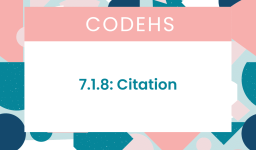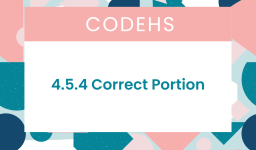The most common answer is:
numerator = int(input("Enter a numerator: "))
denominator = int(input("Enter denominator: "))
# Use a while loop here to repeatedly ask the user for
# a denominator for as long as the denominator is 0
# (or, put another way, until the denominator is not
# equal to 0).
if denominator == 0:
run = True
while run :
if int(numerator / denominator) * denominator == numerator:
print("Divides evenly!")
else:
print("Doesn't divide evenly.")
else:
if int(numerator / denominator) * denominator == numerator:
print("Divides evenly!")
else:
print("Doesn't divide evenly.")To ensure this program runs correctly and adheres to Python syntax, including using standard ASCII quotation marks, proper indentation, and fixing the logic to check for divisibility, here’s the revised version of your code:
numerator = int(input("Enter a numerator: "))
denominator = int(input("Enter denominator: "))
while denominator == 0:
print("Denominator cannot be 0. Please enter a non-zero denominator.")
denominator = int(input("Enter denominator: "))
if numerator % denominator == 0:
print("Divides evenly!")
else:
print("Doesn't divide evenly.")
- Input Validation with
whileLoop:- The program ensures that the denominator is non-zero by repeatedly asking for a new input until a valid value is provided.
- Divisibility Check:
- Once a valid denominator is entered, the program checks if the numerator divides evenly (
numerator % denominator == 0).
- Once a valid denominator is entered, the program checks if the numerator divides evenly (
- Output:
- Prints appropriate messages based on the divisibility result.
This should meet the requirements of using a while loop and passing the test cases.



